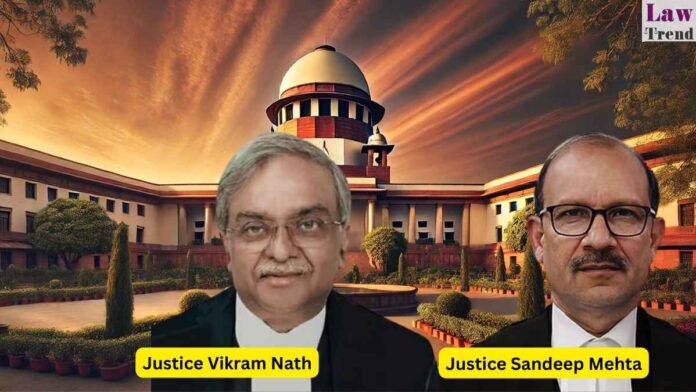The Supreme Court has ruled that once a High Court accepts a compromise to quash certain offences in an FIR, it cannot sustain other offences arising from the exact same “inseparable” factual matrix. The Court held that if the settlement is genuine enough to quash personal offences, it “equally dilutes the foundation” of more serious
To Read More Please Subscribe to VIP Membership for Unlimited Access to All the Articles, Download Available Copies of Judgments/Order, Acess to Central/State Bare Acts, Advertisement Free Content, Access to More than 4000 Legal Drafts( Readymade Editable Formats of Suits, Petitions, Writs, Legal Notices, Divorce Petitions, 138 Notices, Bail Applications etc.) in Hindi and English.




